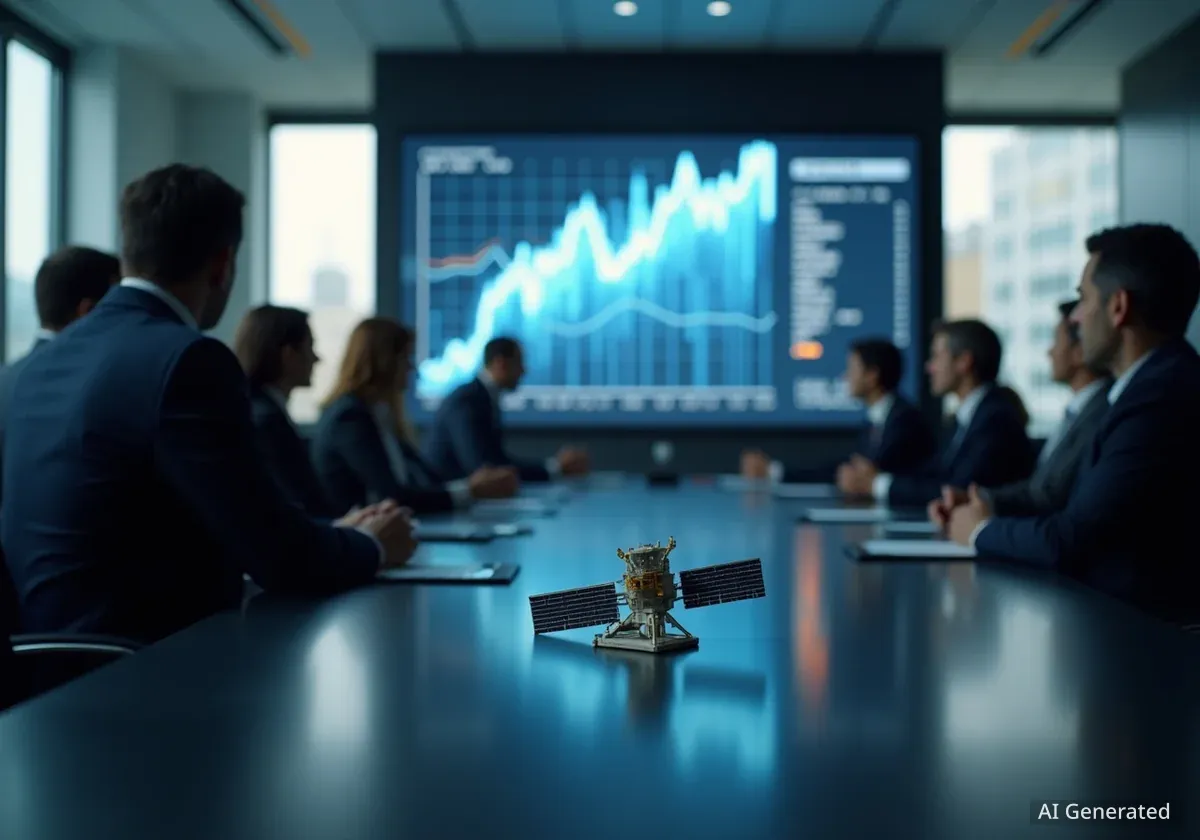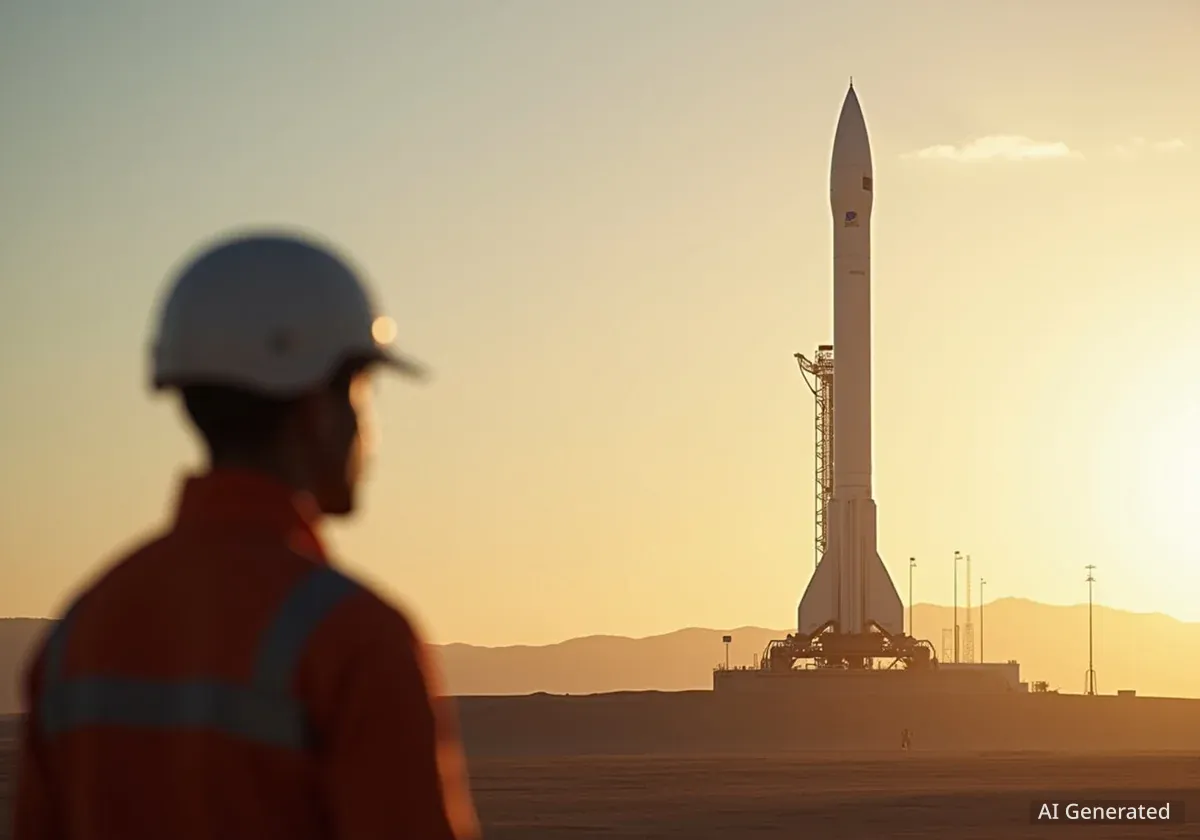The global space industry is navigating a period of significant change, influenced by rising inflation, fluctuating interest rates, and growing geopolitical tensions. These factors are reshaping investment strategies and prompting industry leaders to reassess the future of space finance. An upcoming discussion will bring together key figures to analyze these complex dynamics.
Experts from leading investment firms will examine how macroeconomic trends are affecting capital availability for both early-stage startups and established companies. The conversation will also address the increasing influence of government spending and international competition on private investment in the sector.
Key Takeaways
- Economic pressures, including inflation and interest rates, are altering the flow of capital into the space sector.
- Geopolitical competition and new regulations like export controls are impacting cross-border investments and collaborations.
- The role of government demand and sovereign wealth funds is growing, raising questions about their effect on private capital.
- Consolidation through mergers and acquisitions (M&A) is becoming a key strategy for companies seeking stability.
Economic Headwinds Challenge Space Ventures
The space economy, once characterized by a steady flow of venture capital, is now facing a more challenging financial landscape. According to industry analysts, rising interest rates have made borrowing more expensive, which directly impacts capital-intensive space projects that rely on long-term financing. This shift affects companies at all stages of development.
For early-stage startups, securing initial funding rounds has become more difficult as investors adopt a more cautious approach. Late-stage companies are also feeling the pressure, as the path to profitability is scrutinized more closely than ever before. This new environment demands greater financial discipline and a clear strategy for generating revenue.
Background: The Recent Investment Boom
The past decade saw unprecedented investment in the commercial space sector, driven by declining launch costs and technological advancements. Venture capital firms poured billions into startups focused on everything from satellite constellations to in-orbit services. The current economic climate represents a significant departure from that period of rapid, speculative growth, forcing a market correction.
Navigating Capital Market Dynamics
The upcoming expert panel will feature detailed analysis on these financial trends. Kirk Konert, a Managing Partner at AE Industrial Partners, is expected to provide insights into how private equity is adapting to the new reality. His perspective will likely focus on building resilient companies that can withstand market volatility.
Mark Boggett, CEO of Seraphim Space, will offer a view from the venture capital side, particularly concerning early-stage investments. His discussion may cover which sub-sectors within the space industry remain most attractive to investors despite the economic downturn. Chad Anderson, Managing Partner at Space Capital, will contribute a broader market analysis, drawing on his firm's extensive data on space investment flows.
Geopolitical Tensions Reshape the Playing Field
Beyond economics, the global political climate is exerting a powerful influence on the space industry. Intensifying competition between major world powers, such as the United States, China, and Russia, has led to a more fragmented and regulated environment. This has direct consequences for investment and international partnerships.
Governments are implementing stricter export controls and trade restrictions to protect national security interests and proprietary technologies. These measures can complicate or even prevent cross-border investments, forcing companies to navigate a complex web of regulations. For investors, this adds a new layer of risk that must be carefully managed.
Increasing Government Budgets
Despite pressures on private capital, government spending on space continues to grow. In 2023, global government space budgets reached a combined total of $117 billion, an increase of 15% from the previous year. This spending is heavily focused on national security, Earth observation, and scientific exploration.
"The interplay between private capital and government-led demand is one of the most critical issues facing the space industry today. We need to understand whether sovereign strategies are amplifying private investment or inadvertently crowding it out."
The Rise of Government and Sovereign Investment
A central theme of the discussion will be the growing role of state-sponsored funding. As governments increase their reliance on commercial space capabilities for defense and intelligence, they have become major customers for private companies. This government demand provides a stable revenue stream for many firms, making them more attractive to investors.
At the same time, sovereign wealth funds are becoming more active in the space sector, viewing it as a strategic area for long-term growth. The panel will explore whether this influx of state-backed capital is a net positive for the industry or if it creates an uneven playing field that disadvantages purely private ventures.
Consolidation as a Path to Resilience
In response to market uncertainty, many experts predict a wave of consolidation within the space industry. Mergers and acquisitions (M&A) are increasingly seen as a viable strategy for companies to achieve scale, combine resources, and enhance their resilience.
Potential discussion points include:
- Which segments of the space market are most ripe for consolidation?
- How can M&A help companies weather economic storms?
- What are the risks and benefits of consolidation for innovation and competition?
The insights from the panelists will be crucial for companies and investors planning their strategies for the next several years. The discussion will be moderated by Jason Rainbow, a Senior Staff Writer at SpaceNews, who will guide the conversation through these pressing topics.
Identifying Future Growth Opportunities
Despite the challenges, the space industry continues to hold immense potential. The final part of the discussion will focus on identifying where the next wave of growth capital is likely to emerge. Panelists are expected to highlight promising areas such as Earth observation data analytics, in-orbit servicing, and technologies that support sustainable space operations.
The event is sponsored by ST Engineering iDirect, a company involved in satellite network technology. Their work in multi-orbit architectures and cloud-native solutions reflects the technological innovation that continues to drive the industry forward, even amid economic and political uncertainty. Understanding these intersecting forces is essential for anyone looking to invest in or build a business in the modern space economy.





